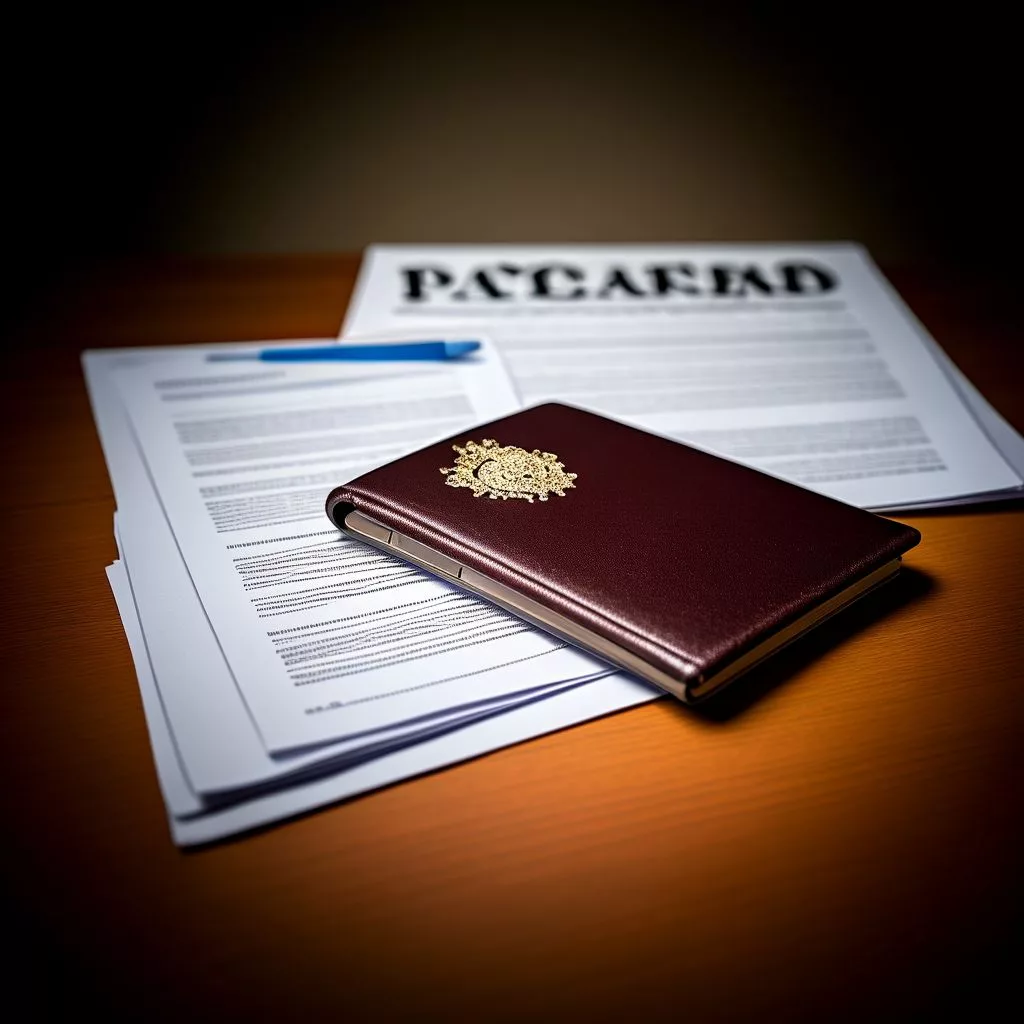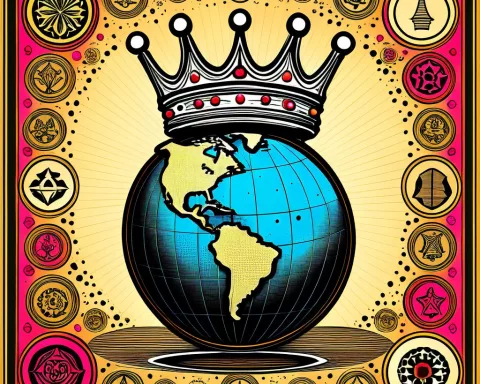Anabela Rungo’s life took a dramatic turn when she was arrested in Cape Town for allegedly lying about her residency status. The Department of Home Affairs claims she committed fraud to stay in South Africa, stirring up big questions about identity and belonging. As a mother to famous pageant star Chidimma Adetshina, Rungo’s story digs deep into the struggles many face when trying to find a place to call home. Her fight against the system shows how personal dreams can clash with the law, making us think about who truly belongs in a society that tightly controls borders and identities.
What is the legal drama surrounding Anabela Rungo in South Africa?
Anabela Rungo’s legal troubles stem from her arrest in Cape Town, where the Department of Home Affairs revoked her residency documents, accusing her of fraud. This case raises significant questions about identity, immigration laws, and the impact of personal ambition amid legal scrutiny.
An Arrest That Shook Cape Town
In a world where globalization has blurred the lines of national identity, the saga of Anabela Rungo unfolds with a mix of legal intricacies and personal turmoil. Her arrest in Cape Town on a seemingly mundane February day has thrust her into a spotlight of legal scrutiny, personal ambition, and unwavering familial loyalty.
Anabela Rungo, mother to the well-known pageant figure Chidimma Adetshina, finds herself at the heart of a narrative questioning the authenticity of her South African residency. The news of her detention by the Department of Home Affairs has reignited age-old migration debates, highlighting the struggle for legitimacy in a world defined by intricate geographical and legal identities. Rungo’s situation brings to light the challenges faced by many caught between diverse identities, echoing the experiences of countless individuals globally.
The crux of Rungo’s legal troubles lies in the Department’s decision to revoke her South African documentation, accusing her of fraudulent acquisition back in 2001. This incident mirrors historical narratives where individuals have navigated complex systems to secure a future in foreign lands. Siya Qoza, spokesperson for the Department, clarified that the revocation of her documentation effectively rendered Rungo ineligible to reside within South Africa’s borders.
Historical Parallels and Modern-Day Implications
Rungo’s story fits within a broader historical context where restrictive immigration policies have often left people in a state of limbo, striving for inclusion while confronting exclusionary laws. This narrative is not new; it echoes past struggles where the pursuit of a better life often clashed with sovereign rights and legal frameworks. Her case exemplifies the ongoing tension between personal aspirations and the rigid structures of national law.
Moreover, the implications of Rungo’s alleged actions extend beyond her personal narrative, affecting others in significant ways. One notable repercussion involved the apparent identity theft of a South African woman, whose identity was reportedly used without consent, obstructing her ability to register her child. This incident echoes themes prevalent in art and literature, where the exploration of identity and legitimacy often delves into complex narratives of displacement and belonging.
The connection between Rungo and her daughter, Chidimma Adetshina, adds another layer of complexity to this unfolding drama. As a celebrated figure in the pageant world, Adetshina’s life in the public eye starkly contrasts with the shadow of her mother’s alleged past actions. The Department has clarified Adetshina’s innocence, noting her infancy during the purported fraudulent activities. This distinction underscores the intricate dynamics of familial connections and personal accountability, resonating with those familiar with complex family relationships.
Acts of Defiance and Legal Consequences
In a bold act of defiance, Rungo continued residing in South Africa, utilizing her Mozambican passport despite being labeled “undesirable.” Her resistance to bureaucratic decrees draws parallels to literary characters who challenge societal constraints. This defiance prompts reflection on the persistent tension between individual agency and state authority, a motif that has persisted throughout history.
The ongoing investigation spearheaded by the Counter Corruption and Immigration Services aims to unveil further layers of deception. In a significant development, authorities discovered Adetshina’s underage child in Rungo’s care, introducing another dimension to the narrative. This discovery involves the Department of Social Development and the SAPS Child Protection Unit, emphasizing the state’s duty to protect vulnerable individuals—a responsibility grounded in both legal and moral obligations.
As the story unfolds, the presence of Chidimma Adetshina in Cape Town continues to captivate public attention. A video circulating on social media shows her enjoying leisure moments in the city, sparking questions about her movement in light of the revocation of her South African-issued documents. This sighting provokes curiosity about the nuances of identity and mobility in an era where borders and documentation define life’s possibilities.
The Exploration of Identity in Art and Society
Historically, the intersection of identity and legality has served as fertile ground for artistic exploration. From Kafka’s existential musings to contemporary cinematic portrayals of border struggles, this theme remains persistent across various media. Rungo’s story, with its elements of intrigue and familial ties, finds a place in this rich tapestry of narrative exploration.
The saga of Anabela Rungo and Chidimma Adetshina offers a poignant reminder of the multifaceted nature of identity. It invites reflection on the broader societal structures that dictate who belongs and who remains an outsider. As the Department of Home Affairs continues its inquiry, the story highlights the ongoing tension between the personal and the political, the intimate and the institutional.
This evolving narrative challenges us to consider the human stories behind headlines and legal proceedings. It demands an appreciation for the individual experiences that shape our understanding of citizenship, belonging, and the quest for legitimacy in a rapidly changing world.
What led to Anabela Rungo’s arrest in South Africa?
Anabela Rungo was arrested in Cape Town after the Department of Home Affairs revoked her residency documents, accusing her of committing fraud to obtain her residency status. This situation raises significant concerns regarding identity and immigration laws.
How does Rungo’s case relate to broader immigration issues?
Rungo’s legal troubles highlight the ongoing struggles faced by individuals seeking legitimacy in the context of restrictive immigration policies. Her story reflects a historical narrative of people navigating complex systems to secure opportunities in foreign lands, often clashing with sovereign rights and legal frameworks.
Who is Chidimma Adetshina and what is her connection to Rungo’s story?
Chidimma Adetshina is Anabela Rungo’s daughter and a well-known pageant figure. While Rungo faces legal challenges, Adetshina’s life in the public eye contrasts sharply with her mother’s situation. The Department of Home Affairs has clarified that Adetshina was an infant at the time of the alleged fraudulent activities, underscoring her innocence in the matter.
What are the legal implications of Rungo’s alleged actions?
The Department of Home Affairs has labeled Rungo as “undesirable,” making her residency in South Africa illegal. The ongoing investigation by the Counter Corruption and Immigration Services aims to uncover further details regarding her alleged fraudulent actions, which could have broader implications for immigration enforcement and policy.
How does Rungo’s case reflect societal issues of identity and belonging?
Rungo’s situation raises critical questions about identity, belonging, and the human experience in the context of rigid immigration laws. It compels society to consider who is deemed worthy of inclusion within national borders and how personal aspirations often clash with institutional frameworks.
What are the potential repercussions of this case for others in similar situations?
Rungo’s case could set a precedent for how immigration fraud is addressed in South Africa, potentially impacting others navigating similar challenges. Additionally, the discovery of an underage child in Rungo’s care has prompted involvement from the Department of Social Development, emphasizing the state’s responsibility to protect vulnerable individuals, further complicating the narrative of identity and legality.












